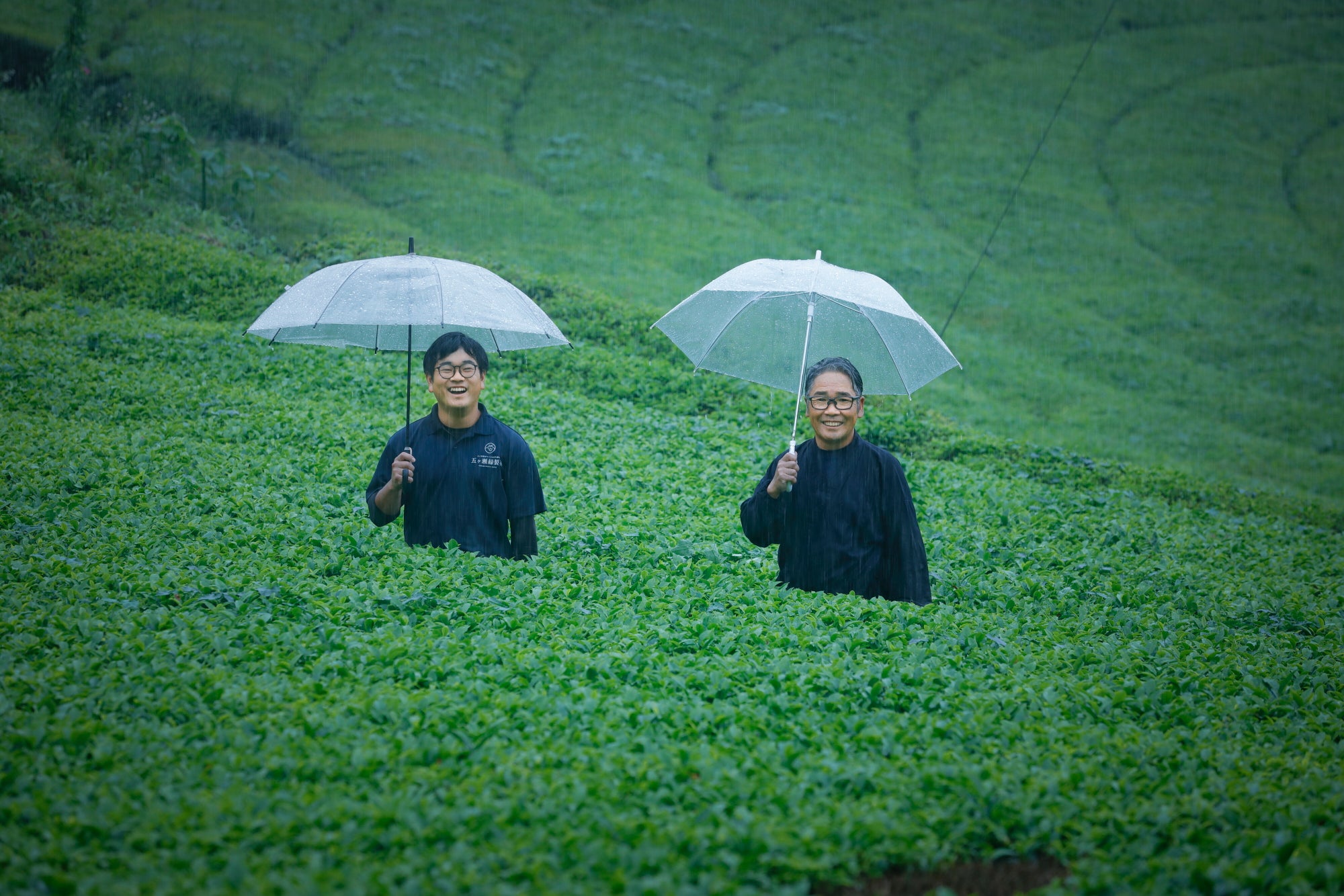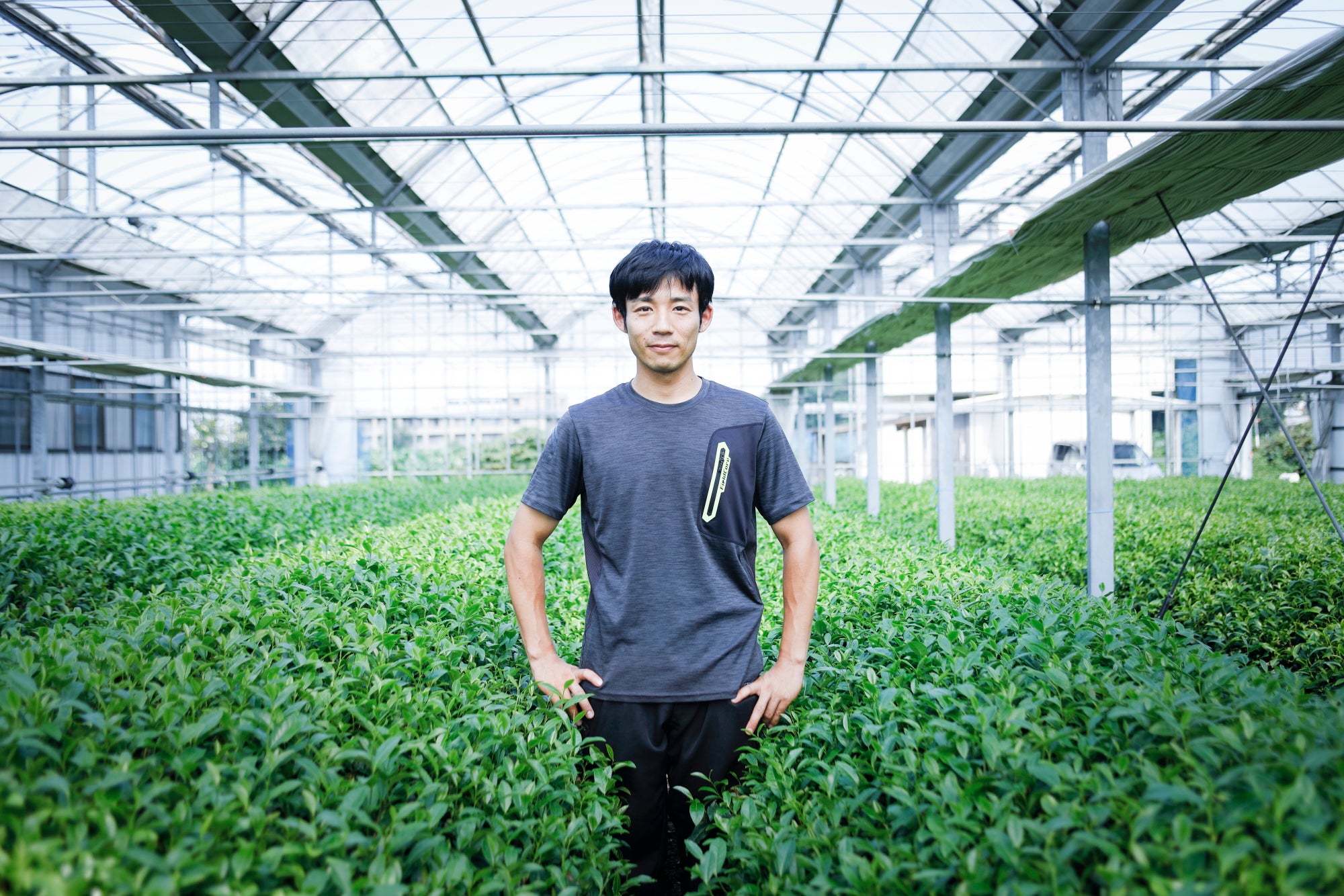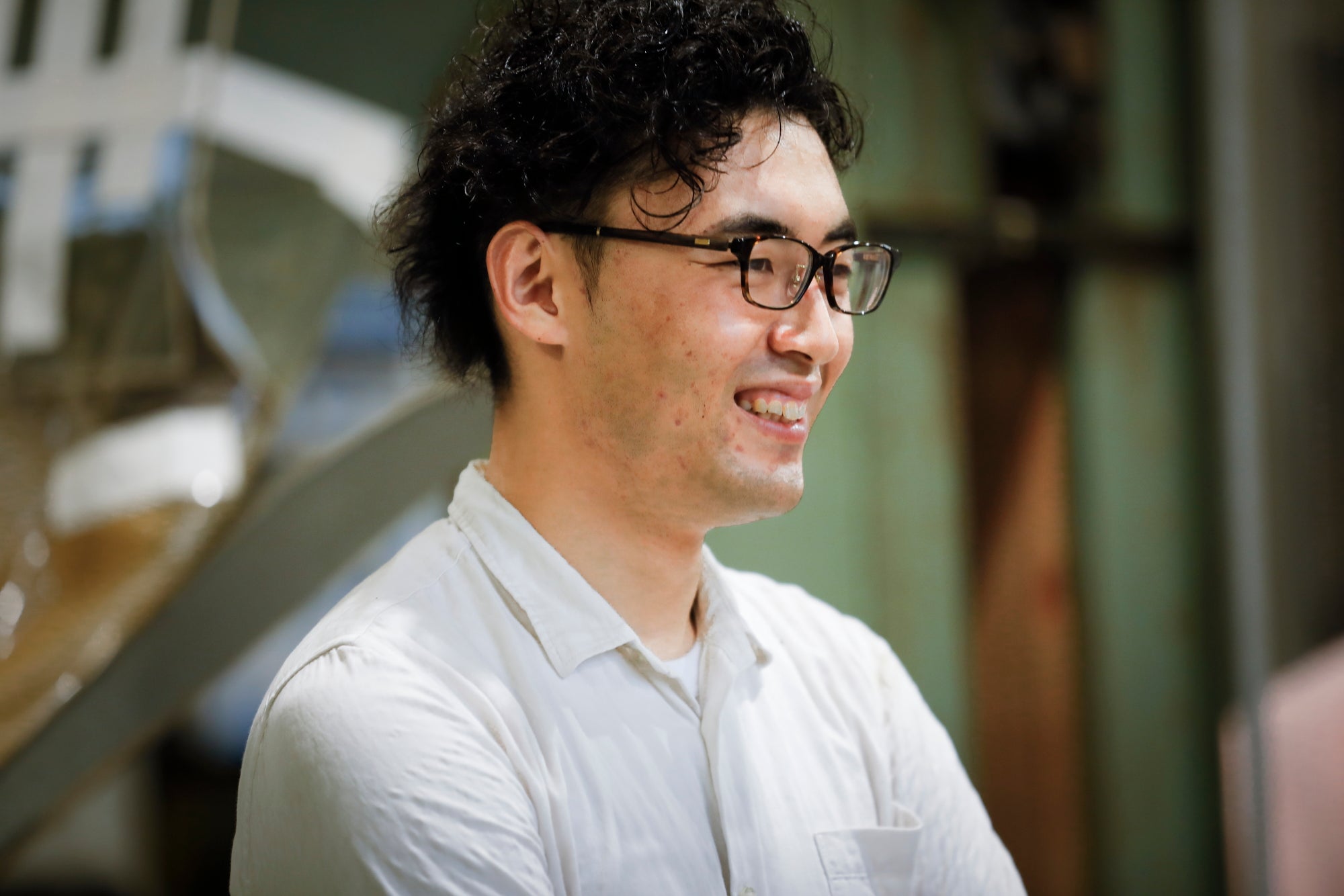Sustainable Tea Farming. Do no harm to people or nature.
A sustainable environment keeps tea traditions alive.
The Origin
Ujitawara Town,Kyoto
An hour’s drive south from Kyoto, the former capital of Japan, brings you to Uji, a town famous for its tea. From there, an old winding road runs along the river eventually leads to the streets of Ujitawara. This is the birthplace of green tea in Japan, where the sencha process was invented.
The Tea Farmer

Yoshinori Koyama
Born and raised in a family that has farmed the land in and around Uji for 18 generations since the 15th century, Koyama-san worked at a company for 8 years before taking over the family business at the age of 30. In addition to making and selling tea, his focus is also on embracing the experience of the process of farming, such as walking through the tea plantation and plucking tea by hand. His goal is to change the conventional approach to farming and become a sustainable tea farmer, so that this business can be properly passed on to the next generation.
The Tea
Gokō
Organically grown tea leaves have a grassy aroma like medicinal herbaceous. It has a palatable taste with less astringency than Yabukita, the most widely distributed variety. This is a tea for people who value each instance of their lives day to day.


The color of the tea and steeped tea leaves.

Tea leaves prior to brewing
This is the appearance of wab_sab_ tea. These visual images only tell half the story - imagining what it will taste like is also a space to be filled by the person brewing the tea. By looking at the tea leaves prior to brewing, then from the first to third infusions, and seeing how these leaves gradually open up, one can try to imagine the taste and flavor of this tea. It is ultimately something to be experienced first hand, and not something that can be found on the web.
First infusion

Second infusion

Third infusion

The Environment
The slope compensates for the soil quality.
In Ujitawara, where the land is quite mountainous, tea is grown on slopes with strong inclines. The soil does not have the same drainage characteristics as volcanic soil, but by planting on a slope, the plants benefit from the flow of water moving from high to low grounds.

Learn more about Ujitawara
A mountain that was once at the bottom of the ocean.
Ujitawara, known for its tea, has another name: fossil town. Shells and fish unearthed from old strata, as well as a rare dolphin bone fossil were found a few years ago, which proved that this place was formed by the uplift of the sea.

Growing tea
Think of farming as a way to enjoy other things besides buying and drinking tea.
They’ve walked away from conventional methods that require the continuous production of tea to be profitable, and instead they invite people to enjoy the process of daily farming. By establishing a new business model, Koyama-san hopes to bring people back to the tea farm and become a sustainable tea farm. This is his concept of how farming should be.

Sustainability
Somewhere between an ideal and harsh reality.
Watching his parents, Koyama-san felt that he could do more to move the family business forward, so he quit the company he was working for and joined the world of tea farming. “ There was is no boss. There is no constraints. My income could increase in line with what I put in.” The reality of being a tea farmer was very different from what he had expected.

See this person’s product
Read stories from other farmers

Gokase Midori Tea Farm
Gokase Town, Miyazaki
Native Organic Varieties. Authentic kama-roasted tea for future generations by leveraging nature to its fullest.

Yokota Tea Farm
Sayama City, Saitama
Unbounded Urban Tea. Cultivation methods are given free reign to enhance the unique flavors of 17 single-origin tea varieties.

Goda Tea Farm
Yame City, Fukuoka
A Flagship Tea Grown by Umami Obsessives.Unique methods hit upon through trial and error are used to bring out umami.








